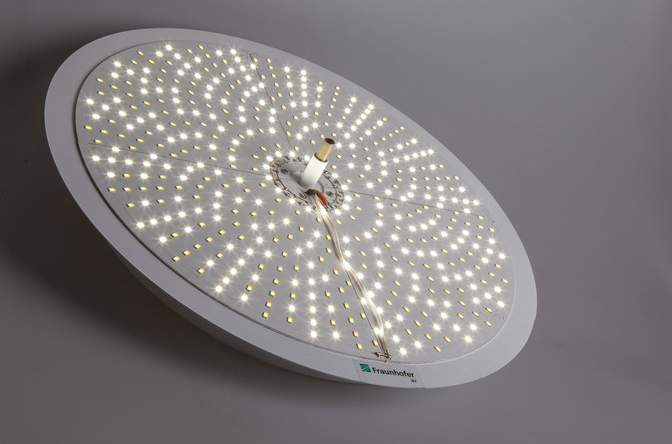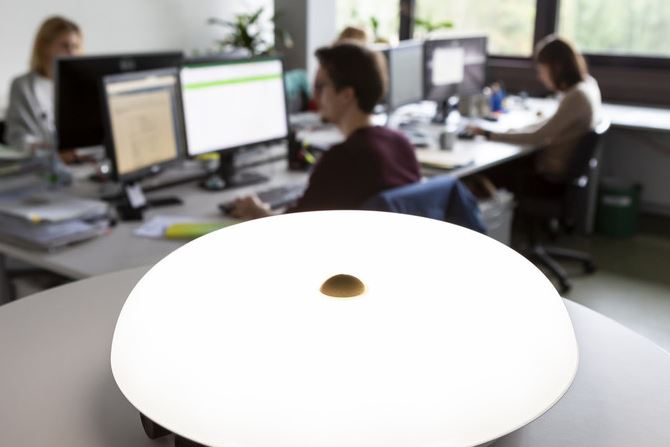

Currently, about 20% of global electricity consumption is spent on lighting. Due to the invention of the white light emitting diode (LED) at Fraunhofer IAF in 1995 and its rapid development, an efficient, environmentally friendly and durable semiconductor light source with an energy saving potential of up to 85% compared to the light bulb is available today. With the increasing spread of LED lighting, however, a number of problems and challenges are becoming apparent: The driver electronics generate high losses and often limit the service life of LED lights. Furthermore, LEDs as semiconductor light sources offer new functionalities, such as loss-free dimming, variable color temperature or adaptive light field, which are currently only insufficiently used. Even the lighting control installation in existing buildings usually allows only very limited flexibility in the use of room and daylight and the generation of light according to requirements.
The Suslight_works project demonstrates reliable, efficient, sustainable and smart LED lighting for workplace and office applications. A special focus is on the development of durable, highly efficient LED drivers and the use of the extended functionalities of LEDs in combination with sensor technology and wireless control. The aim is the human-centered, resource-saving and demand-oriented illumination of workplaces.
 Fraunhofer Institute for Applied Solid State Physics IAF
Fraunhofer Institute for Applied Solid State Physics IAF